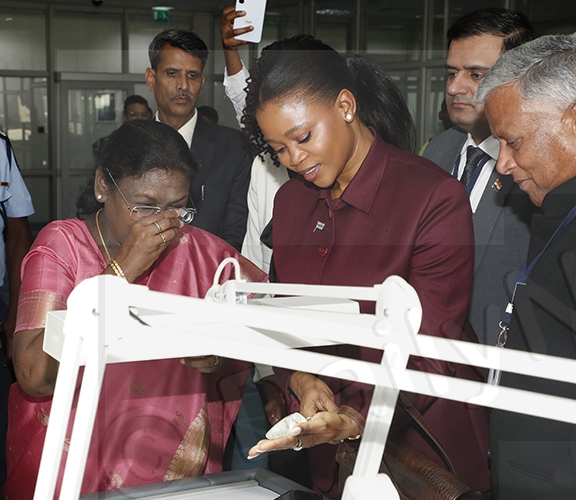Inflation relief package flicker of optimism
31 Jul 2022
The recently announced P1.8 billion short-term government interventions to cushion households from economic turbulent has been hailed as an array of courage to alleviate low income earners from economic hardships.
“Value Added Tax reduction and VAT zeroing on liquid petroleum gas and cooking oil could go a long way in alleviating low households from the burden of increased prices,” economist, Mr Louis Sibanda revealed in an interview.
Mr Sibanda said the net effect of the relief package was to help address inflation’s far reaching effects on low income earning individuals, and communities would generally benefit from reduced inflations as pursuing general reduction in price growth could be tangible.
The relief package is not entirely done to create a difference in pricing, but the purpose is to mitigate against inflation.
“It’s not to say you must see a difference in your pocket, but the difference should be in price diminution marginal growth,” he said.
He said government was deploying measures and mechanisms to address price growth rate, adding that Bank of Botswana, through the monitory policy, had deployed interests to that effect in order to arrest price increase growth.
He said the two per cent VAT reduction and the VAT zero rating of some food items that made up an average food basket was a welcome move in the reduction of inflation rate to fall within the reserve bank’s three to six per cent objective range.
“Batswana should not press panic buttons as inflation had previously reached 16 per cent, but the target of the recent announcement is to reduce the inflation from the current 12.7 per cent and create some net effect to low income families,” he said.
Since inflation is dynamic and changes frequently, Mr Sibanda said there was no mechanism that could be permanently implemented to address it, hence the relevant stakeholders would make relevant pronouncement, which would be guided by the outcome of the six months trial period.
Despite the economic implications brought about by the Russia invasion on Ukraine, he stated that some of the inflation, particularly on vegetable products, was due to supply constraints as a result of the ban on horticulture importation.
“The creation of economic policy is not meant for government beneficiation, but for private sector, hence the ban on horticulture products importation could have been a wake up call to the private sector to stimulate local production to address supply constraints,” he said.
“It is worth noting that the liquid petroleum gas is one of the drivers of the rural economy, though it does not directly make up the composition of a food basket, it enables the consumption of food basket products,” he said.
Mr Sibanda further cautioned that VAT zeroing might not directly benefit consumers since there were no price policing measure to safeguard retail price reduction compliance.
Regarding Botswana Meat Commission additional loan funding of up to P120 million, he said government bailout of BMC made economic sense based on the role the entity played in the country’s food value chain.
He said Botswana Meat Commission constituted 30-40 per cent of revenue in farming and bailing it out would put food on many families as it would enable the entity to pay farmers on time, which move would translate to more money circulation in the economy.
He, however, said there was urgent need to transform Botswana Meat Commission and make it self-sustaining and profitable so that it did not milk government coffers.
Meanwhile, Mr Sibanda said there was a likelihood that the inflation rate could remain high due to factors such as the potential increase in international commodity prices beyond current forecasts; persistence of supply and logistical constraints to production; the economic and price effects of the ongoing Russia-Ukraine war and the uncertain COVID-19 profile. Ends
Source : BOPA
Author : Thato Mosinyi
Location : Gaborone
Event : Interview
Date : 31 Jul 2022





